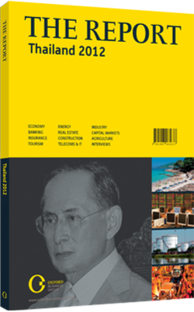OBG talks to Jon Eddy Abdullah, CEO, Total Access Communication (DTAC)

Interview: Jon Eddy Abdullah
How confident are you that the regulatory uncertainties in the industry will be resolved?
JON EDDY ABDULLAH: I am very confident that they will be resolved because what is currently being proposed is different to the previous resolution process in 2010. First of all, there is a strong regulator in place now that for the first time is integrating telecoms and broadcast regulation. This regulator has a very strong mandate and is following strict deadlines; they have time to do things right.
Second, the consumer is different compared to 2010. Smartphones are becoming increasingly popular and currently represent 16-20% of the mobile phone market share. There are a lot of people saying, “we need 3G”, and whether you look at it from a voting or a commercial point of view, this is significant.
Finally, there are many advanced services and applications, which, together with the kinds of devices available on the market as well as the changing regulatory environment, shows that things are starting to bubble up. However, the networks, which usually come before everything else, are falling behind. Given the pressure on the industry and the poor quality of our networks to meet traffic demand, I think the only solution is to have more spectrum. That is why I am positive that the 3G auction will take place.
What is the future of the state-run Telephone Organisation of Thailand (TOT) and CAT Telecom?
ABDULLAH: First of all, I believe that CAT and TOT have a great role to play in creating harmony within the industry. All of the operators are too big to be dominated. For me the scenario is simple. Let’s take DTAC as an example. We paid for the upgrade of our network; it is in the concession and it belongs to CAT. Why would we want to rebuild any of it in a licensed-based regime – we have invested a lot not just in the development of telecommunications towers but in passive equipment as well. As the country moves to a licence-based regime for 3G – hopefully later in 2012 – the optimal way forward would be for CAT to be a third-party infrastructure provider for DTAC.
Establishing a system of cost-oriented wholesale access prices would be good for all operators as well as for CAT, generating another revenue stream for CAT moving forward. I think we can do this with the help of the regulator, which has a role to play in mediating the process of the industry’s transition and in finding a viable business model. Doing something other than that would not be in Thailand’s interests, as it would mean exporting more capital out of the country.
In your opinion, what should operators be doing to develop higher-value-added services?
ABDULLAH: Operators cannot hope to take on the likes of Twitter and Facebook by developing applications themselves, but they can offer different kinds of packages with existing apps using high-speed data access. They can also assist in providing better access in areas such as music, banking and education.
Making money from music presents a greater challenge in South-east Asia compared to more developed countries because of piracy. We believe, however, we could legitimise the business by providing a platform to distribute music, whether through unlimited access for a fee, or by providing local artists with the ability to go mass-market in an hour. As for banking, most of Asia, as a whole, is underbanked. We can bring people out of poverty through micro-level loans at affordable rates. We could provide savings products for $0.20-0.40. A traditional banking structure cannot handle that, but our businesses run on small transactions. Advertising could also be taken advantage of to develop higher-value-added services – you can now do things at a micro level that you could not do before in Thailand. Education also presents opportunities. Currently, we are working on an education initiative in Asia to facilitate the access to online textbooks for students from low-income families. It is all about access, which is the future of telecoms operators.
You have reached the limit of premium articles you can view for free.
Choose from the options below to purchase print or digital editions of our Reports. You can also purchase a website subscription giving you unlimited access to all of our Reports online for 12 months.
If you have already purchased this Report or have a website subscription, please login to continue.

